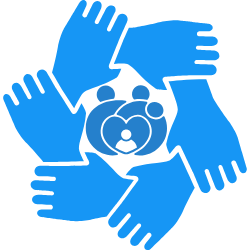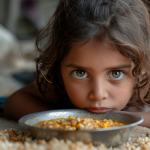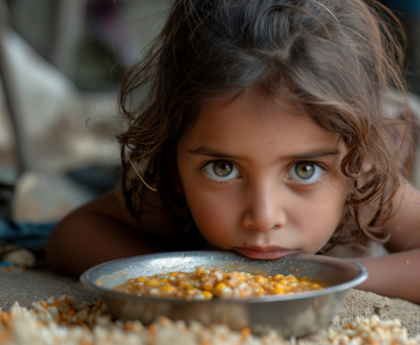Heather King never considered herself an emotional person, but knew she was carrying wounds from her past that she had never fully shared or understood.
Sexual abuse she experienced as a girl left the woman she had become with emotional scars that impacted her life for years, but until recently she didn’t have the opportunity to face and overcome the trauma she experienced. Then King saw an opportunity to take part in the Adult Childhood Sexual Trauma Recovery Group offered by Gulf Coast Kid’s House (GCKH).
The children’s advocacy center is a nonprofit that provides services to child abuse victims in Escambia County. The adult recovery group is a new service the organization provides to help reach more victims and minimize their trauma.
King said the 12-week group counseling experience helped her better understand the abuse she suffered and heal from it, even all these years later.
“I was excited to be able to let that inner demon out,” King, a wife and mother of two young children, explained. “I feel like it was a suppressed thing my whole life. I’m in my 30s and the crazy part is I did talk about it when I was a kid, and nothing ever happened as far as getting my offender to be responsible for their actions, so I felt very unheard in that aspect. I didn’t really know what to expect going into this group. I’m thinking this is probably going to be crazy and weird. It was the complete opposite. It was warm and welcoming, and I felt like I already knew all those women. We were all different ages and all different backgrounds and all different stories, but we just had that connection of that past trauma. Just to be on a personal level with these women and just kind of see into their hurt, their soul and know that we all shared that similar pain, that deep pain. It bonded us.”
Collaborative model under one roof
Gulf Coast Kid’s House has been helping children of all ages overcome abuse like Kelly experienced for 20 years. The children’s advocacy center opened its doors in 2004 as a place where all the professionals and resources needed to intervene, investigate and prosecute child abuse cases can come together under one roof to better collaborate to improve outcomes and minimize trauma to the child.
District 1 State Attorney Ginger Madden said the approach is critical to investigating allegations of child abuse. It helps the state determine if cases have enough evidence to pursue in criminal court and how best a child can be helped, whether or not charges are filed.
“You’ve got law enforcement, prosecution, medical professionals, child protective services, mental health providers are all right there, and everyone brings a level of experience and expertise to the process, and that’s just invaluable for the prosecutors to get all the different perspectives from all the different disciplines and very helpful to the child, too, but we start from a place of believing the child.”
Brothers Richard and Tip McAlpin were among the first board members and have continued to serve the child advocacy center in a variety of ways. Tip, an interior designer, also helped with the kid-friendly design and layout of the building.
From the art on the walls, to little chairs and tables, Gulf Coast Kid’s House was created to be a safe place where children can talk about often uncomfortable and painful details in a comfortable environment.
“We see so many more children than we did at the beginning,” said Tip McAlpin. “I was shocked when I first came on the board in 2004. The conviction rate was 15%, and the problem was the child would tell his story about five different times because they would go to the emergency room to get a physical exam. Then they would have to go to the police station, give an interview, then they would have to go to the counselor, and they were telling their story five or six times. A child who has just been traumatized doesn’t want to do that. Dragging a kid all through that wasn’t a good scenario to take these kids all over town who’ve just been sexually or physically abused.”
One in 10 Escambia County children abused
Twenty years later GCKH house is still making a difference. The nonprofit sees more than 8,000 maltreatment cases a year. Maltreatment is another way of saying they see thousands of suspected victims of physical abuse, sexual abuse, medical neglect, or another type of abuse. In fact, 1 in 10 children in Escambia County experience child abuse, according to GCKH, and most of them are abused by someone they know and trust.
While child advocates know the problem will never go away, the work they do can help intervene in cases of reported abuse and get survivors the help the need to heal and stop the cycle of abuse.
Florida law mandates child protection teams like the one at GCKH serve regions throughout the state. The same approach is applied at each one and they respond to cases 24 hours a day, seven days a week, including weekends and holidays, to examine children and evaluate allegations of abuse.
Dr. CiCi Sekhon has been working with Gulf Coast Kid’s House for years and is on the front lines of the work they do. She often examines children for physical evidence and evaluates allegations of abuse everywhere from hospital emergency rooms to the child-friendly medical exam room at GCKH. The exam room includes a distraction station of lights, bubbles and pretty pictures for children to observe or touch while they are examined.
“These are some of the scariest moments for children in their lifetimes, but we have the extreme honor to be there and help them and make them feel comfortable about talking about the really scary things that happened to them in a nonjudgmental way and start setting that stage for their healing in terms of allowing them to understand that this happened to them,” Sekhon said. “They didn’t choose this. We all are trained to talk to them in an open-ended format and allow them to talk about their abuse without telling them what happened or suggesting what happened. You can see in their eyes that it feels like the beginning of healing.”

Helping children and adult survivors of abuse heal is what motivates many of the facility’s longtime supporters like Pensacola business and philanthropic leaders Sandy Sansing and Teri Levin. They have sponsored and supported fundraising for the center for decades. For Teri Levin, it’s also personal.
She points out that while there have been strides in encouraging people to talk about child abuse, for many years it was a taboo subject. Her goal is to support GCKH’s mission of bringing dark secrets to light in a safe place and being a voice for those who can’t speak for themselves.
“I was a child of sexual abuse by an uncle, a family member who I trusted, at 11 years old,” said Levin. “I didn’t even tell my parents. I was 40 years old before I talked about it and that was the biggest release of my life, being able to talk about it, because talking is healing, and it makes you aware. As you talk about it and you get further into it, then you realize how it affects you in other avenues of your life that you don’t even realize, but awareness is healing.”
‘Awareness is healing’
Gulf Coast Kid’s House counselor Margot Dutel sees up to 30 clients a week. Some are individual sessions and others are in group therapy sessions, like the one adult sexual abuse survivor Kelly took part in.
Dutel is one of four full-time therapists at GCKH. They see children from 3 to 8 years old, as well as do some work with non-offending caregivers to help them help their children.
The therapy services are free and funded by grants because many of the clients couldn’t afford to receive counseling otherwise. In private practice, few mental health therapists take Medicaid, and for the few that do there is a long waiting list.
“One of the horrible things about trauma is this feeling of isolation, like no one understands, as well as a huge lack of control, because in the middle of a traumatic event, that’s one of the characteristics that makes something a trauma, is that we feel an overwhelming loss of control,” described Dutel. “So coming into a group gives them a sense of control over those symptoms and it also takes away that isolation. They realize, ‘I’m not alone in this, right? I’m not crazy.’”
From the archives:Victims Next Door: Part One, children in crisis
To better meet the tremendous need for mental health treatment, Gulf Coast Kid’s House is getting ready to launch a capital campaign to build a separate, stand-alone building for counseling. The plan is to put it next to the current advocacy center on 12th Avenue in Pensacola’s East Hill neighborhood.
“Over the 20 years that we’ve been around, people are discovering in the child advocacy center world that mental health really does better when it’s separate from where the intervention happens because the counselors have to get over that barrier with the kids that when they came here and they disclosed their abuse, their world changed,” said GCKH Director Stacey Kostevicki.
The new facility will provide therapy to a variety of victims and survivors of abuse, including those who show signs of problematic sexual behaviors.
“There really is not someone here in the area who does that,” Kostevicki said, “and when there was someone here that did it, kids would have to get arrested so that they could go see that person free. We hired a life skills counselor.”
For survivors like Heather King, GCKH’s growing counseling opportunities are a lifeline, and she said she hopes the program and facility grow to meet the need and help others experience healing like she did for another 20 years and beyond.
Group therapy helped her see how the abuse she suffered as a child affected how she saw herself and she encourages others who experienced sexual abuse to get help and know it’s nothing to be ashamed of.
“Gulf Coast Kids House is such an amazing resource, and you are going to feel 100% better about it because you get it off your chest, you get it out of your body, because you’ve just been harboring it away, and there’s so much emotion and there’s so much pain inside,” said King. “It does need to be released and you just need to process it. I think that’s the big thing, most of the people in the group, we were very, very young when the stuff happened to us, and we never processed it. It’s a huge relief when you talk about it and get it off your chest.”
This post was originally published on 3rd party site mentioned in the title of this page





